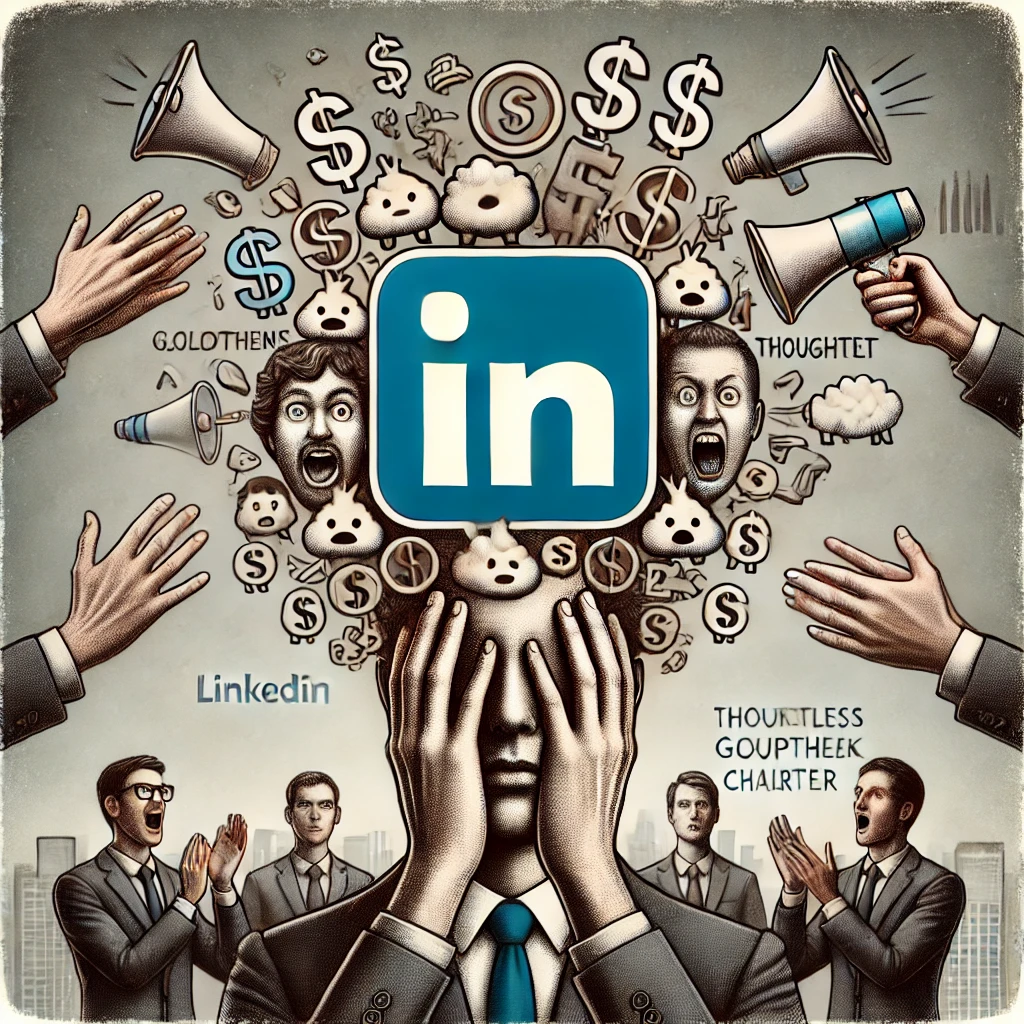Becoming a freelance engineering consultant is rewarding, challenging, and requires preparation and courage. It is a great career choice if the themes of digital nomad and financial independence / retire early (FIRE) resonate with you. I have been freelance engineering consulting since 2019 and recommend one essential thing to survive and thrive: trust. Trust from your clients or potential clients is your lifeline. But how do you earn it? Let’s dive in.
Build a Track Record: Your Trust Bank
Think of your career history as your trust bank. Every project you’ve successfully completed, every problem you’ve solved, and every colleague who’s vouched for you is a deposit.
- Previous Work History: Your former employers and colleagues is the best place to start. Your resume should hit all of the industry buzzwords your potential client cares about. Showcase those big wins and tricky problems you’ve tackled. Did you save a project from going off the rails with a brilliant piece of problem-solving? Highlight it. The more specific you can be about your achievements, the better. Numbers are your friends here: “Increased efficiency by 20%,” “Saved the company $500,000,” or “Completed project two months ahead of schedule” are all compelling stats that potential clients will love.
- Networking and Word of Mouth: Never underestimate the power of a good word from a former colleague or boss. They’re your unofficial marketing team, spreading the gospel of your greatness. Attend industry events, join professional organisations, and maintain a robust LinkedIn presence. Engage with others in your field, share your expertise, and, most importantly, stay in touch with past colleagues. They can be the bridge to new opportunities.
Cold calling new clients is as effective as trying to start a fire with wet wood. Focus on those who know you – previous employers, colleagues, or contacts your awarded work to previously. They’re your best bet for getting your foot in the door. It’s also worth considering creating a portfolio website. Showcase your past projects, client testimonials, and case studies. A well-presented site can serve as a powerful first impression.
Face Time: The Secret Sauce
In the digital age, we’re all about remote work, but there’s something irreplaceable about face-to-face interaction. It’s like the difference between reading about a rollercoaster and actually riding one.
- Project Kickoffs: Show up, shake hands, and set the stage for your project. Your presence can calm nerves and build confidence. Being there in person allows you to better understand the client’s needs, expectations, and any concerns they might have. It also sets a professional tone for the relationship.
- Key Presentations and Milestones: Being there in person for big moments shows commitment. Plus, you can read the room and adjust your pitch in real-time. Presentations are more impactful when delivered face-to-face; your enthusiasm and confidence are contagious and can significantly sway opinions and decisions.
- Team Morning Teas and After Work Drinks: Yes, even casual interactions matter. They help build rapport and a sense of team spirit. These informal settings can lead to valuable insights and connections. But only do it if you enjoy yourself to some degree! You might discover a potential collaborator, a future client, or even a mentor. Plus, (occasiaonally) showing up for the small stuff demonstrates that you’re a team player, not just a hired gun.
This might mean investing in travel and yes, maybe even a suit. Consider it an investment in your business. When you show up looking polished and professional, you signal that you’re serious about your work and your client. And don’t forget, these expenses are tax-deductible!
Get Your House in Order
Running your own show means you need to have your business ducks in a row.
- Business Bank Account and Tax Registration: Make it official. Keep your business finances separate from personal ones. This not only simplifies bookkeeping but also portrays a professional image. Potential clients will feel more comfortable knowing they are dealing with a legitimate business.
- Insurance Readiness: Be prepared to purchase professional indemnity insurance. It’s a safety net for both you and your client. Accidents happen, and mistakes can occur. Having insurance shows that you’re prepared and responsible, which can be a significant trust booster for clients.
- IT Setup: From a robust email system to project management tools, make sure your tech is up to snuff. There is no need to invest in specialist software for tasks like invoicing, time tracking, and document sharing. Tools like Trello, Asana, or Microsoft Project can help you manage your work efficiently. Ensure your computer, internet connection, and any other tech essentials are reliable and secure; particularly to run a Citrix remote desktop and join Microsoft Teams. Be ready to collect all video conferencing solutions of both your laptop and smartphone; Microsoft Teams, Zoom, Google Hangouts, Cisco Webex. I have a second smartphone dedicated as a work phone, as clients will require all kinds of extra authentication apps.
- Updated CV and Project Experience: Keep these current. Your CV is your first impression, so make it count. Tailor it to highlight the skills and experiences most relevant to the type of consulting you’re doing. Regularly update your LinkedIn profile too, as many clients will look there before deciding to hire you. Remember, this is not necessarily for the eyes of your network or contact, but they will likely have to pass your details onto their manager and/or commercial groups to proceed with contracting.
Provide Outstanding Service
This should seem obvious. Your clients need to know they’re getting the best, and that comes down to delivering exceptional service.
- Frequent Updates: Keep your clients in the loop. Regular updates build trust and prevent surprises. Whether it’s a weekly email, a bi-weekly video call, or a detailed monthly report, make sure your client knows the status of the project at all times. Transparency is key.
- Work Management Systems: Use the clients tools to stay organized and efficient. This isn’t just for your benefit – it shows clients you’re on top of things. corporate Enterprise Recourse Planner (ERP) Systems like IBM Maximo, SAP or ABB/Ventyx Ellipse, Jira for task tracking, and of course Microsoft Office for document creation and collaboration can streamline your workflow and ensure nothing falls through the cracks.
- Punctuality and Quality Documentation: Be on time and produce top-notch reports and plans. Your documentation should be clear, concise, and professional. Good documentation not only supports your work but also serves as a reference for clients, helping them understand your processes and decisions.
- Coaching Junior Staff: Genuinely share your knowledge, keep it real and enjoy your field. It’s good karma and can foster strong professional relationships. Mentoring others shows that you’re a leader and a team player. Plus, it’s a great way to give back to the community and stay connected with the latest trends and techniques in your field.
- Invest in Knowledge: Attend conferences, keep aware of industry and product updates, and stay at the cutting edge of your field. Be aware of what is happening in the industry, law changes, big projects, vendor mergers /acquisitions/ announcements. Your expertise is your product – keep it polished. Continuous learning demonstrates your commitment to your profession and can set you apart from competitors who may not stay as current.
Financial Readiness: Embrace the Risk
Freelancing is a rollercoaster. There are highs of winning a big contract and lows of waiting for the next gig. Here’s how to prepare:
- Control Personal Expenses: Live within your means. This gives you breathing room when work is slow. Having a solid budget and emergency fund can help you weather the dry spells without stress. Being financially prudent also means you won’t feel pressured to take on low-paying or unsuitable projects just to make ends meet.
- Charge Fair Rates: Know your worth and don’t undersell yourself. Be prepared to walk away from bad deals. It’s tempting to lower your rates to attract clients, especially when starting out, but this can set a dangerous precedent. Clients who value quality will be willing to pay for it. Make sure your rates reflect your skills, experience, and the value you bring to the project.
- Business Development Costs: Networking isn’t free. Be ready to invest time and money in coffees, beers, and professional events. These interactions can lead to valuable connections and opportunities. Consider them an essential part of your business strategy, not just social activities.
- Professional Accreditations: Keep these current. They’re a mark of your commitment and professionalism. Certifications and memberships in professional organizations can enhance your credibility and open doors to new opportunities. They show that you’re serious about your career and committed to maintaining high standards.
- Plant Lots of Seeds: Engage in networking and business development regularly. You never know which opportunity will sprout into your next big project. Attend industry events, participate in webinars, join online forums, and engage on social media. The more visible you are, the more likely you are to attract new clients and projects.
- Know Your Priorities: Remember what’s important in your life, and for when there is downtime be ready to fully appreciate it with your whole heart; but of course with one eye open ready for the next opportunity!
Freelancing as an engineering consultant is a journey paved with trust. Build your track record, invest in face time, get your business in order, deliver outstanding service, and be financially ready to handle the ups and downs. Do all this, and you’ll not only survive – you’ll thrive. Now, go out there and show the world what you’re made of. And maybe pack a USB headset and a business shirt.




